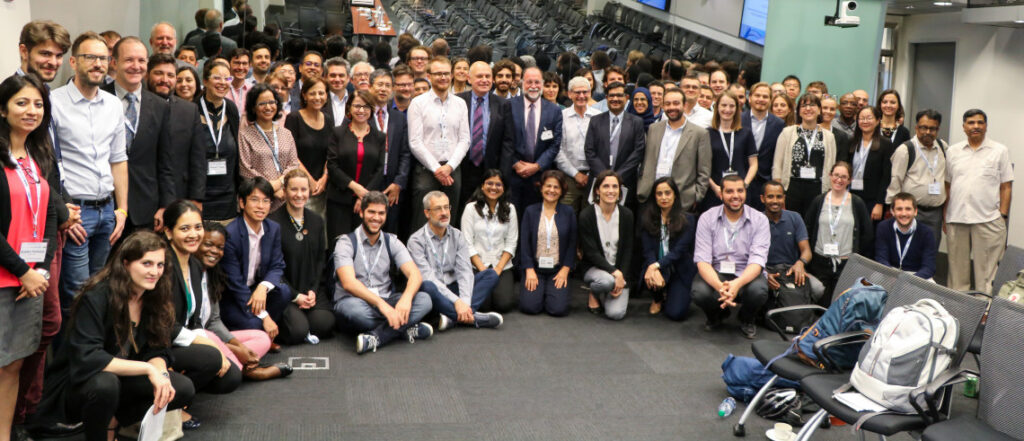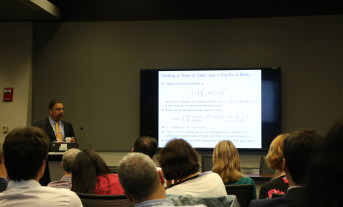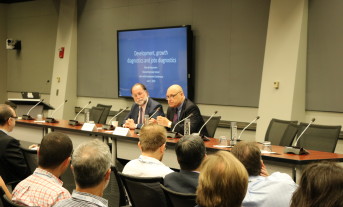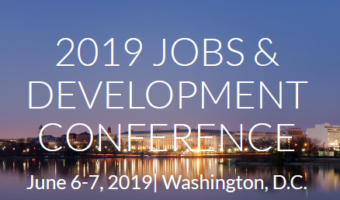Following the success of the 2016 and 2018 Jobs and Development Conferences in Washington DC and Bogotá, the World Bank in collaboration with IZA (the Institute of Labor Economics) and the Network on Jobs and Development organised a follow up conference focused on “Improving Jobs Outcomes in Developing Countries.” The conference took place on June 6th and 7th, 2019 in Washington DC. Nearly 80 researchers from more than 20 countries presented their research on a range of policy-relevant topics, such as automation and the future of work, gender equality, entrepreneurship, economic growth, territorial development and jobs, social protection, wage policies, education, training and skills, as well as jobs in fragile and conflict contexts.
The policy challenges in Low Income Countries
The welcome remarks were delivered by Gary S. Fields (Cornell University and IZA), Piotr Lewandowski (IBS and IZA) and Ian Walker (World Bank). Afterwards, Ian Walker moderated a panel with policy-makers: Steven Ayres (DFID), Prakash Loungani (International Monetary Fund), Indhira Santos (World Bank) and Kunal Sen (UNU-WIDER, University of Manchester and IZA). The design of labour market institutions and social protection, the future of jobs in agriculture and the access to jobs for women in Low Income Countries were the key topics of the discussion.

Technology, economic growth and jobs
The conference included two excellent key-note lectures by Daron Acemoglu (MIT and IZA) and Ricardo Hausmann (Harvard Kennedy School). Daron Acemoglu outlined a task-based model of production which allows disentangling the productivity, displacement and reinstatement effects of technological progress. He argued that since the 1980s, the nature of technological progress has changed as it increasingly displaces workers thanks to automation while the reinstatement thanks to creation of new tasks for people has been lower than in the middle of 20th century. This has slowed down wage growth and labour demand. Ricardo Hausmann argued that the solutions to jobs challenges may lie in removing structural obstacles that constraint labour demand rather than in labour market policies and interventions. He stressed that these obstacles are likely to be different in various countries. He demonstrated that the complexity in product space, know-how and agglomeration effects are critical for development successes. He explained that migration and mobility-enhancing infrastructure are instrumental in improving know-how and complexity in less developed economies.


he IBS speakers
Our institute was represented by Piotr Lewandowski, Iga Magda and Michał Myck (CenEA). Piotr Lewandowski presented a paper on international differences in tasks content of jobs and the role of technology, globalization and skills in understanding these differences (→ presentation; paper). Iga Magda presented a paper on gender wage gaps and the differences in their size and nature among domestically- and foreign-owned companies (→ presentation; paper). Michał Myck presented a study on economic consequences of political persecution, based on the persecution and labor market discrimination during the communist regime in the former Czechoslovakia (→ presentation; paper).
More info
You can follow the updates on future events on the conference website:
www.jobsanddevelopmentconference.org
Organizers
IZA – Institute of Labor Economics – Gary Fields and Ahmed Elsayed
The World Bank – Ian Walker and Yolaina Montoya
The Network on Jobs and Development (NJD)* – Albert Park and Piotr Lewandowski
(*A partnership of five research institutes from various regions of the world: Development Policy Research Unit at University of Cape Town (DPRU, South Africa), HKUST Institute for Emerging Market Studies (HKUST IEMS, Hong Kong), Indian Council for Research on International Economic Relations (ICRIER, India), Institute for Structural Research (IBS, Poland) and Latin American and Caribbean Economic Association (LACEA).)

 Lewandowski_Explaining-Differences-in-Routine-and-Nonroutine-Work_Jobs_Dev_2019-1.pdf
Lewandowski_Explaining-Differences-in-Routine-and-Nonroutine-Work_Jobs_Dev_2019-1.pdf
 IgaMagda-presentation.pdf
IgaMagda-presentation.pdf
 Persecution_Presentation_MM2019-1.pdf
Persecution_Presentation_MM2019-1.pdf


